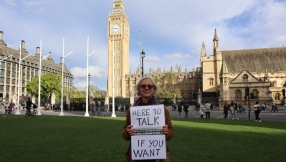Wycliffe Bible Translators, the world's largest Bible translation organisation, is to launch a major 17-year project to translate the Bible into the last remaining languages.
The Last Languages Campaign is a historic, high-speed and high-tech effort to start a language development and Bible translation programme in the remaining one-third of the world's language groups that still need one by 2025 represents a time saving of 125 years from the 1990s translation pace.
The project will bring first-time access to literacy and the Bible for some 200 million people in approximately 2,400 language groups over the next 17 years.
The effort is fuelled by new strategies and high-tech translation techniques developed by Wycliffe personnel that accelerate the pace of language development and Bible translation by three times the pace of a decade ago.
Wycliffe Bible Translators said that critical community development - literacy, the establishment of water purification systems, Aids education, human rights and community empowerment - often began with Bible translation and the language development that is foundational to it.
"The completion of Bible translation and the worldwide community development that accompanies it is now in sight," said Wycliffe USA President Bob Creson. "Countless communities worldwide will be transformed by the broader impact of the language development that is one of the first steps to Bible translation."
Even before the official launch, this ambitious campaign has already received significant support, including a $50 million single donation and a new aircraft.
Deputy chairman of the New York Stock Exchange holding company, Marshall N Carter, donated his personal million-dollar airplane to a Wycliffe Last Languages partner.
Some 6,400 Wycliffe translators, linguists, aviators, humanitarian workers, educators and administrators along with dozens of partnering organisations are currently working in 93 countries on six continents toward the Last Languages goal. Wycliffe anticipates needing 3,000 additional staff for the billion-dollar effort.
Most Popular
Stay up to date with Christian TodayNews

President Trump's Arctic love affair
Surely an ally should not be presented with a take it or leave it poke in the eye?

Bradford Cathedral to host launch of 2025 Cathedrals Cycle Relay in UK City of Culture Year
The third national Cathedrals Cycle Relay (CCR) is set to launch on 24 May 2025 from Bradford Cathedral, coinciding with Bradford’s year as the UK City of Culture.

Megachurch pastor criticises Disney's ‘Snow White’ remake for abandoning biblical themes
Harvest pastor Greg Laurie has criticised Disney’s live-action remake of ‘Snow White’ for stripping away what he sees as its original gospel-centred message.

US warns UK over free speech, citing pro-lifer's prosecution
The US state department has issued a statement saying it is "concerned about freedom of expression in the United Kingdom" and that it is "monitoring" the case of a pro-life woman prosecuted for holding a sign offering help within an abortion clinic "buffer zone".





